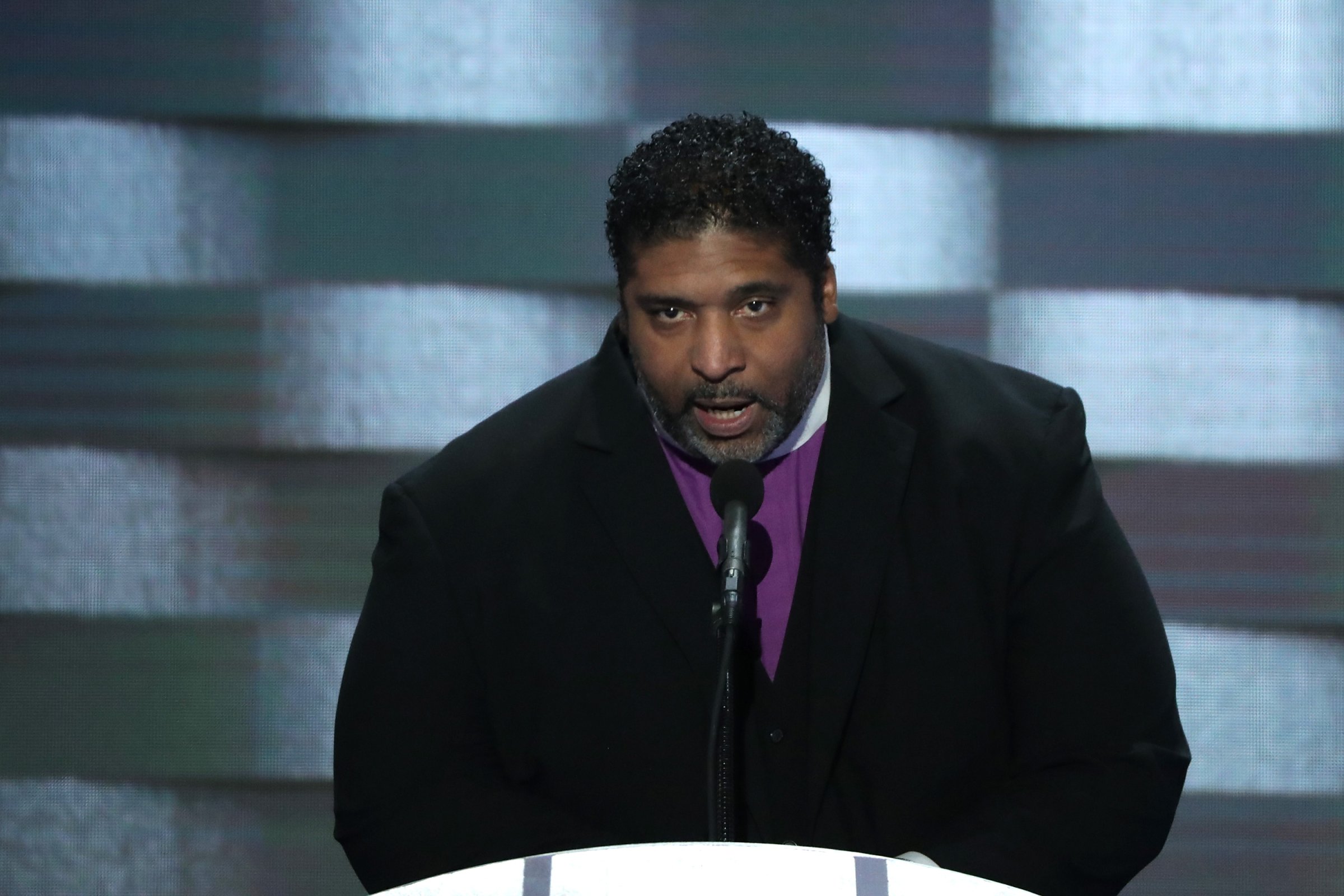
Last month, when I addressed the Democratic National Convention in Philadelphia, I said that America had a heart problem, and that the times called for us to be “moral defibrillators” that can revive our ailing democracy. Now, thousands of workers have called a code and asked people of faith to join them in in Richmond, Va., this coming weekend to shock the heart of our democracy. I’m honored to join them.
The working people of the Fight for $15 have changed the way this country thinks about wages and won raises for nearly 20 million Americans. Now they are prompting a conversation about the intersection of race and class that is long overdue in America.
That the workers selected the capital of the old Confederacy for this convention is no accident. They understand that the fight for a more perfect union cannot be waged piecemeal. The economic injustice that keeps working people struggling in poverty is inextricably linked to America’s original sin of racism.
Across the country, more than half of black workers and nearly 60% of Latino workers are paid less than $15 per hour thanks to factors including discrimination in hiring, underfunded schools and an unjust justice system. Many people of color hold jobs that are themselves the legacy of slavery, like home care and domestic workers, positions which have historically been deliberately denied basic labor protections like overtime pay or the minimum wage.
When low-wage workers laboring under the legacies of slavery and segregation fought back and raised their own pay through minimum wage hikes in Southern municipalities like Birmingham, St. Louis and Kansas City, majority white legislatures stole those raises away through preemption laws.
At the same time that people of color have labored under racist systems that undervalue their work and limit their political power, some corporate interests have launched a 40-year attack on working people to ensure that good union jobs that once provided the path to a decent life now no longer do.
If the racial, social and economic inequalities that plague our nation are all linked, so too are the fights to address them. The battle for civil rights and the battle for living wages are interconnected. These battles are moral battles. As God says in the book of Malachi: “I will speak against those who cheat employees of their wages, who oppress widows and orphans, or who deprive the foreigners living among you of justice” (3:5). The prophets insist that our deepest public concerns must be how our society treats the poor and most vulnerable, and whether all of us enjoy true equality and representation under the law.
In Leviticus we are instructed not to “oppress your neighbor or rob your neighbor of their wages.” Jesus declared a prophetic moral vision for his ministry when he said in his first sermon: “The Spirit of the Lord is upon me to proclaim good news to the poor.” That so many legislators in Alabama and Missouri—many of them self-professed Christians—were willing to steal wages from their neighbors by thwarting wage increases is proof that the heart of our democracy is ailing.
In a time when too many use religion to cynically further greed, racism and hate instead of holding true to the moral principles that demand equality for all, America is in need of a moral revival. Such a revival is in reach. You can see it in the groundswell movements for social, racial and economic justice like the Fight for $15 and Black Lives Matter, and in the thousands who have petitioned their leaders to take a moral high ground and embrace economic, social, and racial justice.
On Saturday, I will stand with dozens of ministers and about 10,000 hardworking people as they march on monuments to Confederate generals that still stand. And on Sunday, we will continue the hard but vital work of reviving our democracy by standing together, organizing and ensuring that our voices and votes are heard in this November’s elections.
As we gather, we stand on the shoulders of a moral movement before us which, inspired by the Social Gospel, pushed a sitting U.S. President 83 years ago to say: “No business which depends for existence on paying less than living wages to its workers has any right to continue in this country.” What was true then is still true now. We’re moving forward together.
More Must-Reads From TIME
- The 100 Most Influential People of 2024
- Coco Gauff Is Playing for Herself Now
- Scenes From Pro-Palestinian Encampments Across U.S. Universities
- 6 Compliments That Land Every Time
- If You're Dating Right Now , You're Brave: Column
- The AI That Could Heal a Divided Internet
- Fallout Is a Brilliant Model for the Future of Video Game Adaptations
- Want Weekly Recs on What to Watch, Read, and More? Sign Up for Worth Your Time
Contact us at letters@time.com